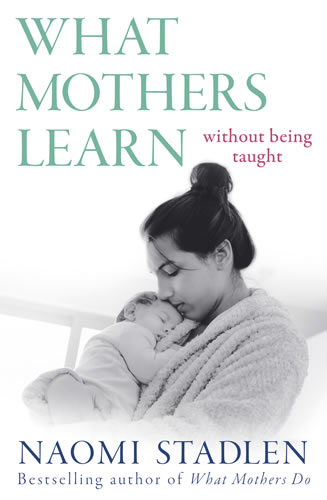- The Bestselling Author Of What Mothers Do
Have any questions

From the Introduction of
What Mothers Learn
‘Some of what mothers learn is practical. But some of it is mysterious. We can sum it up as ‘mothering’. Mothering is universal and ancient, and centres on the way that mothers relate to their children. Mothers discover how to relate. But these relationships often develop quietly with little to show for them. As the American writer Sara Ruddick said: ‘The work at the centre of mothering, the work that children demand and that mothers do, remains elusive.’ In a materialistic culture like ours, people prefer to talk about quantifiable actions. These can be named and explained. If they aren’t – and mothering isn’t – it’s easy to brush these relationships aside and assume that learning to relate isn’t important.
‘Yet babies and children need mothering – plenty of it. And though, as mothers, we find that mothering requires a lot from us, we get back a lot too. Babies remind us of the wonder of being alive. It’s eye-opening, and helps us to see one another from a gentler perspective. We often become more thoughtful members of the society we live in. Few societies acknowledge how much they owe to their mothers.
‘Mothering is often confused with childcare. But it’s much more than that. Childcare can be paid for. When mothers say that they feel bored and frustrated, they’re usually talking about childcare. Mothering is exciting and challenging, rather than boring.’
Copies of What Mothers Learn can be ordered online from www.littlebrown.co.uk and www.amazon.co.uk.
"Each mother creates her own relationship, or conversation, with her baby"
Copyright © 2026 Naomi Stadlen / Qbic Internet Solutions - All rights reserved. Privacy Policy
Leave a Message